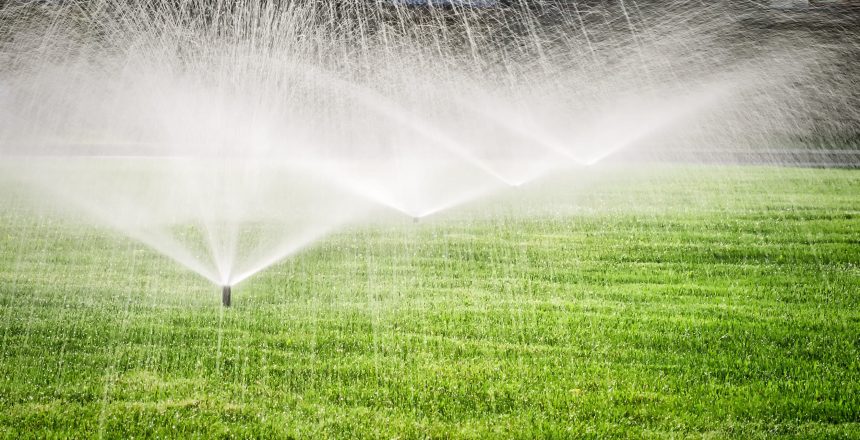Warmer weather has arrived, making it the perfect time to spring clean your sprinkler system. A little time spent now inspecting, adjusting, and performing routine maintenance will help save you water, and money during the hot days of summer.
Check for Leaks
Sprinkler leaks can happen from any part of your sprinkler system including sprinkler heads, valves, pipes, and drip systems. Physical damage, corrosion, loose fittings and connections, faulty components, low head drainage, and clogs are just a few reasons leaks can happen. A few quick steps can help you identify leaks that need to be addressed:
- Low pressure, wet spots, and puddles can indicate leaks in sprinkler heads, lines, or valves.
- Inspect the tubing for any kinks or cracks that may turn into leaks and if necessary replace them.
Inspect and Maintain Sprinkler Heads
Overtime sprinkler heads can damage or clog due to debris, residue and mud. Dust particle accumulation can result in misalignment causing the water stream to be misdirected. This is why inspecting sprinkler heads is crucial for efficient working of your commercial or residential irrigation system. Fixing broken or damaged sprinkler heads is easy following these simple instructions:
- Clean sprinkler heads by turning off the water and turning the head counterclockwise to disassemble. Check for misalignment, clogs, or damage before cleaning the head and reassembling.
- While most quality sprinkler heads will last for several years, they do occasionally need to be replaced for efficient water distribution.
- In addition to cleaning and replacing sprinkler heads, you should also test the sprinkler head height of your irrigation system. This includes confirming the heads are positioned correctly to ensure they are not too high or low for optimal watering.
Flush Your Sprinkler System Annually
It’s important to flush your irrigation system at the start of each season to clean out any dirt or debris that has built up.
- Turn off water supply. Find the main shut off valve for your irrigation system, usually near the garage, basement or valve box, and turn it off.
- Drain the system. If you don’t have an automatic draining system, simply open the manual drain caps or valve on the stop and waste valve so all water can drain.
- Blow out the lines. Connect an air compressor to your systems blowout port and individually turn on each zone to blow air through the system until water stops coming out.
Monitor Water Pressure
Confirm that your water pressure is within the recommended 40-65 PSI range. Out of range pressure may mean there is a crack or blockage in the pipes. The sooner you can identify and address these issues the better for your entire system.
Update Your Sprinkler Schedule To Meet Seasonal Plant Needs
Plants and lawns have different watering needs throughout the year, needing less water in spring and summer than they do in winter and fall. Now is the perfect time to adjust your sprinkler schedule to meet the current needs. This will not only prevent them from being overwatered, but also save you money.
Have a Professional Inspection
Professionals certified through the Irrigation Association are up-to-date on the latest irrigation technology and committed to providing sustainable solutions. Having a licensed professional come in spring, before the main watering system begins is a perfect time to do a comprehensive inspection to ensure your sprinkler system is running efficiently and correctly.
Consider Upgrades to Your System
If you don’t have a smart irrigation system, you will waste water. Smart systems use sensors to detect changes in weather (especially rainfall!), water pressure and evaporation rates. This helps your system apply the right amount of water. You can also use an app on your phone to operate the system remotely.
If you have had your irrigation system for a 5+ years, a newer system or component upgrades will help you to improve water and energy efficiency. Engage a reputable, certified lawn irrigation contractor. Greener Earth may have recommendations.

